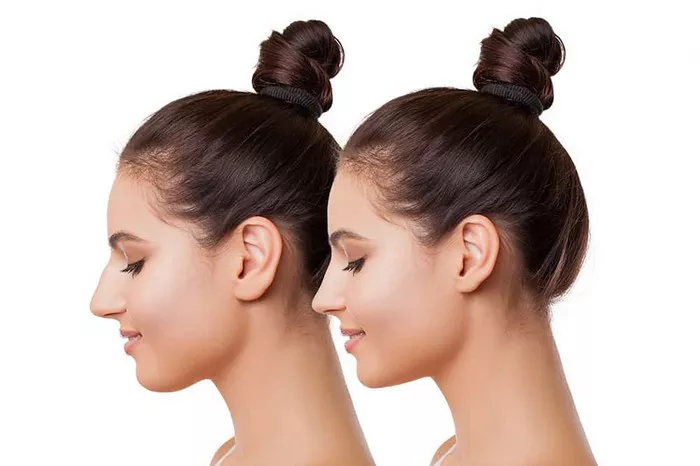Rhinoplasty, commonly known as a nose job, is a surgical procedure that is performed to reshape the nose. It is a popular cosmetic procedure that is designed to improve the appearance of the nose and enhance facial harmony. However, after rhinoplasty, patients may experience swelling in the nose and surrounding areas. In this article, we will explore what to eat after rhinoplasty to reduce swelling and promote healing.
Why is Nutrition Important After Rhinoplasty?
After rhinoplasty, the body undergoes a healing process that requires energy and nutrients. Proper nutrition is essential for promoting healing, reducing swelling, and minimizing the risk of complications. Eating a healthy and balanced diet can also help boost the immune system and reduce inflammation, which can aid in the healing process.
Protein to Promote Healing
Protein is essential for tissue repair and healing. Eating protein-rich foods after rhinoplasty can help promote healing and reduce swelling. Lean meats such as chicken, turkey, and fish are excellent sources of protein. Eggs, tofu, and legumes such as lentils and chickpeas are also good protein sources.
It is important to note that not all protein sources are created equal. Some sources of protein, such as red meat and processed meats, can be high in saturated fat and may increase inflammation in the body. It is best to choose lean protein sources that are low in saturated fat and high in nutrients.
Vitamin C to Reduce Inflammation
Vitamin C is an antioxidant that helps boost the immune system and promote healing. Eating foods that are rich in vitamin C after rhinoplasty can help reduce inflammation and promote healing. Citrus fruits such as oranges, grapefruits, and lemons are excellent sources of vitamin C. Berries, kiwi, tomatoes, and broccoli are also good sources of vitamin C.
It is important to note that vitamin C is a water-soluble vitamin, which means that it is not stored in the body. It is important to consume vitamin C-rich foods regularly to maintain adequate levels of this important nutrient.
Omega-3 Fatty Acids to Reduce Swelling
Omega-3 fatty acids are anti-inflammatory and can help reduce swelling after rhinoplasty. Eating foods that are rich in omega-3 fatty acids can help reduce inflammation and promote healing. Fatty fish such as salmon, tuna, and mackerel are excellent sources of omega-3 fatty acids. Walnuts, flaxseed, and chia seeds are also good sources of omega-3 fatty acids.
It is important to note that omega-3 fatty acids are sensitive to heat and can be destroyed by cooking. It is best to consume omega-3 fatty acid-rich foods raw or lightly cooked to preserve their nutritional value.
Zinc to Promote Healing
Zinc is essential for tissue repair and healing. Eating foods that are rich in zinc after rhinoplasty can help promote healing and reduce swelling. Oysters are an excellent source of zinc. Beef, chicken, pork, and beans are also good sources of zinc.
It is important to note that excessive zinc intake can be harmful. The recommended daily intake of zinc for adults is 8-11 mg. Consuming too much zinc can cause nausea, vomiting, and diarrhea.
Water to Stay Hydrated
Drinking plenty of water is essential for staying hydrated and promoting healing after rhinoplasty. Drinking at least eight glasses of water a day can help reduce swelling and promote healing.
It is important to note that other beverages such as soda, coffee, and tea can be dehydrating and may increase swelling after rhinoplasty. It is best to avoid these beverages and stick to water to stay hydrated.
Foods to Avoid After Rhinoplasty
In addition to eating foods that promote healing and reduce swelling, it is also important to avoid foods that can increase swelling and delay the healing process after rhinoplasty.
Salt
Consuming too much salt can cause the body to retain water, which can lead to swelling after rhinoplasty. Avoiding salty foods such as chips, pretzels, and processed foods can help reduce swelling after the procedure.
Alcohol
Drinking alcohol can cause dehydration and increase the risk of bleeding and swelling after rhinoplasty. Avoiding alcohol for at least two weeks after the procedure can help promote healing and reduce swelling.
Spicy Foods
Spicy foods can cause inflammation and irritation in the nose and surrounding areas. Avoiding spicy foods such as hot sauce, chili peppers, and curry can help reduce swelling and promote healing after rhinoplasty.
Sugary Foods
Consuming too much sugar can cause inflammation and delay the healing process after rhinoplasty. Avoiding sugary foods such as candy, soda, and desserts can help reduce swelling and promote healing.
Caffeine
Consuming too much caffeine can cause dehydration and increase the risk of swelling after rhinoplasty. Avoiding caffeinated beverages such as coffee, tea, and soda can help promote healing and reduce swelling.
Conclusion
Proper nutrition is essential for promoting healing and reducing swelling after rhinoplasty. Eating a healthy and balanced diet that is rich in protein, vitamin C, omega-3 fatty acids, and zinc can help promote healing and reduce swelling after the procedure. Avoiding salty foods, alcohol, spicy foods, sugary foods, and caffeine can also help reduce swelling and promote healing. By following these dietary guidelines, patients can optimize their recovery and achieve the desired results of the rhinoplasty procedure.

